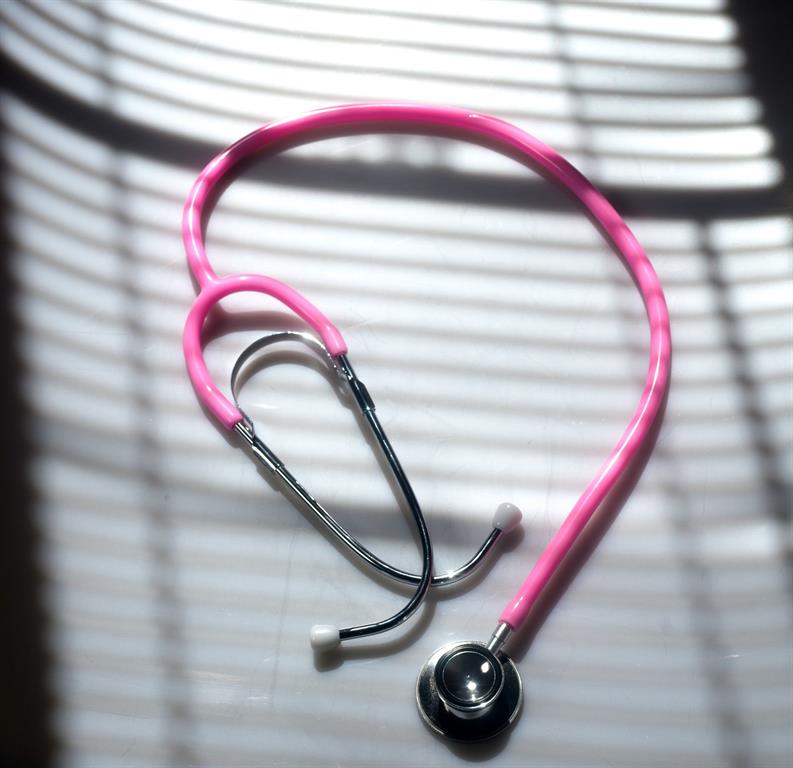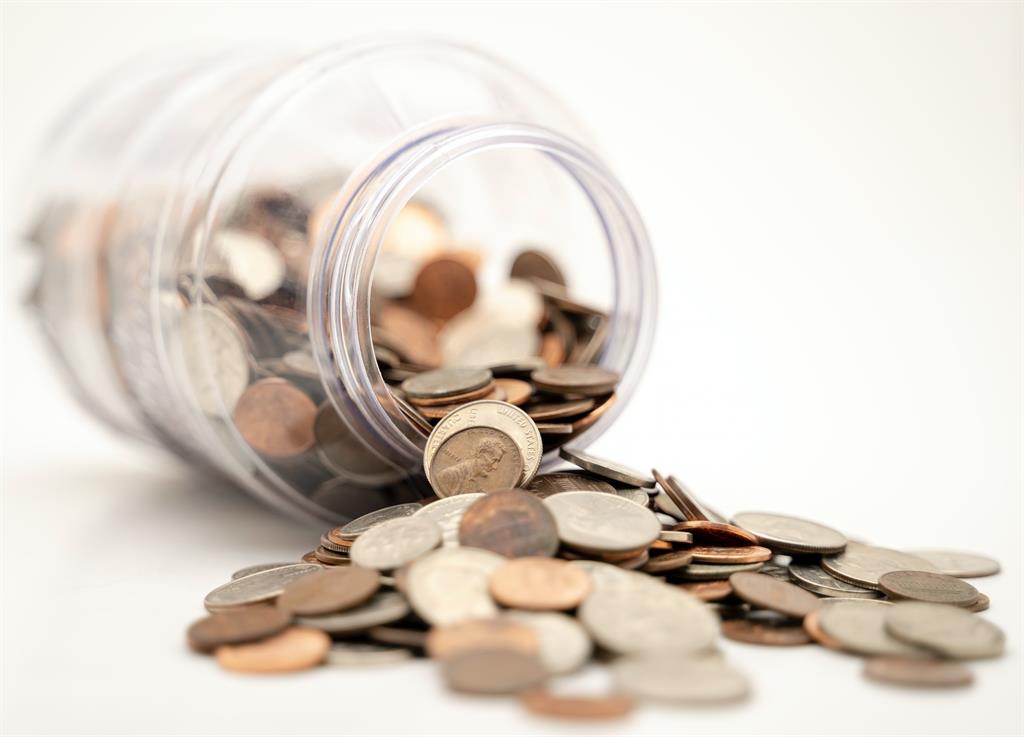Saving lives save money
Cancer has the greatest economic impact from premature death and disability of all causes of death worldwide.
Henriette Lamprecht - Cancer is one of the critical issues causing economic and financial burden in the world today. The disease is taking an enormous human toll around the world and is a growing, with the biggest threat in low- to middle-income countries like Namibia.
The growing incidence of cancer means that the health budgets of nations worldwide are being threatened, with nations facing lost productivity through premature deaths and time taken off from work.
There is a compelling financial argument for committing resources to cancer control. Financial investment can be cost-effective and can potentially save the global economy billions of dollars in cancer treatment costs and offer positive gains in increased survival, productivity and improved quality of life.
Public budgets for medicines and medical equipment are also being strained due to the high cost of treatment.
In a landmark study of the economic cost of all causes of deathy globally and including cancer and other non communicable and communicable diseases, the American Cancer Society and LIVESTRONG emphasized cancer as the world’s leading cause of death, followed by heart disease and stroke. The report and research clearly shows cancer has the most devastating
economic impact of any cause of death in the world, ranging from premature death death and disability of all causes worldwide. It is clear from the evidence produced that balancing the world’s global health agenda to address cancer, will not only save millions of lives, but also billions of dollars.
In 2008 the total economic impact of premature death and disability from cancer worldwide was already US$895 billion, presenting 1,5% of the world’s gross domestic product (GDP). This figure from the economic toll of the disease was then nearly 19% higher than heart disease, the second leading cause of economic loss.
According to the study which did not include direct medical costs which would further increase the total economic cost, the lost years of life and productivity represent the single largest drain on the global economy. This in comparison to other causes of death including HIV/Aids and other infectious diseases.
The total annual economic cost of cancer is estimated at approximately US$1.16 trillion.
The study states death and disability from lung cancer, colon/rectal cancer, and breast cancer account for the largest economic costs on a global scale. In lowincome countries, cancers of the mouth and throat, cervix, and breast have
the greatest impact.
The burden on individuals and families is profound according to the study, especially in low- and middle-income countries like Namibia where the loss of income due to sickness or death can quickly undermine family finances.
Individuals living with cancer and their carers often take a double-hit on their finances. This includes out-of-pocket expenditures for ongoing and expensive treatments like surgery or chemotherapy. Lost income and benefits from taking time off work also combine to create a catastrophic financial burden.
According to the study this can lead to drained savings, borrowing money or selling assets.
“Those who struggle often give up on going to medical appointments because of the cost of transportation, cutting back on food, education and/or defaulting on bill payments.”
The financial toll has a domino effect, creating a source of additional
anxiety and stress for both patient and caregivers during an already difficult time.
Caring for somebody who has cancer also reduces a person’s chance of being employed. Many are unable to work, need to take leave without pay, have fewer work hours, are in lower paid jobs or work from home.
Referring to stats of 2008, the study says 7,6 million deaths from cancer were recorded. Of this 60% and more than half of the estimated 12,4 million cases of cancer diagnosed each year take place in developing countries like Namibia.
The study’s research is based on death and disability from 17 forms
of cancer among 188 member nations of the World Health Organization
(WHO). The US$895 billion removed from the world wide economy amounts to 1.5 % of the total global GDP.
According to the study 25 nations are losing more than 2% of their GDP to deaths and disability caused by cancer. Nearly half of all countries studied are losing more than 1% of GDP to the disease. The WHO and global health experts believe that significant costs from cancer could be mitigated by targeted, cost effective interventions that have worked in more affluent nations. The study further confirms that the “silent pandemic” of cancer is spreading through low- and middle-income countries. Without a substantive global response, it could overwhelm public health systems, threaten social structures, and undermine economic development efforts. Cancers of the lung, bronchus, and trachea by far account for the largest drain – nearly US$180 billion – on the global economy. The study reference smokers that die an average of 15 years earlier than nonsmokers. If current trends continue, tobacco will kill seven million people annually by this year and 8 million per year by 2030. More than 80% of these deaths are recorded in low- to middle-income countries. One-third of those deaths are the result of cancers.
Because the death and disability toll from lung cancer remains high across income levels of nearly all nations, efforts like the WHO Framework Convention on Tobacco Control (FCTC) could have a significant impact in reducing economic losses, the study . The WHO FCTC is an international treaty signed by 168 countries, including Namibia, to regulate the sale and marketing of tobacco products.
According to the research success at tobacco control could pay other dividends in both public health and economic development. Relevant intervention programs targeted to reduce tobacco use could also produce favorable results in controlling cardiovascular and respiratory diseases.
Another finding in the report illustrates the heavy burden individuals in less affluent nations must bear due to the lack of awareness and effective interventions for some types of cancer. Despite the fact that most cases of cervical cancer can be prevented or treated effectively, 274 000 women die from the disease yearly. Of these approximately 241 000 are among women in low- and middle-income nations.
The economic impact of cancer of the cervix in low-income countries is equally disproportionate and compelling, the analysis shows. Among nations classified by the World Bank as low income, cervical cancer accounts for more than 10% of the economic loss, second only to mouth and throat cancers.
The the majority of women in low-income countries however do not have access to care that can prevent the onset of cervical cancer or detect it early enough for a cure. As a result, many women are diagnosed too late to benefit from lifesaving treatment.
It is a different scenario in high-income countries where a large proportion of women have benefited from routine screening and treatment modalities for more than 50 years, and, as a result, cervical cancer rates have dropped dramatically in those nations.
The research emphasizes that prevention and treatment strategies aimed at these and other preventable forms of cancer could not only save lives, but improve economic
development prospects in many nations.
“Taking action can be cost-effective and have a return on investment,” the study states. As example it uses the investment of US$11 billion in prevention strategies in low- to middle-income countries which could potentially save US$100 billion in cancer treatment costs. By recognising that investing in cancer is a smart move, governments can justify placing cancer control at the heart of their national health plans.
Sources: The Global Economic Cost of Cancer, cancer.gov; ResearchGate.net, Journal of Clinical Medicine, fda.gov.
The growing incidence of cancer means that the health budgets of nations worldwide are being threatened, with nations facing lost productivity through premature deaths and time taken off from work.
There is a compelling financial argument for committing resources to cancer control. Financial investment can be cost-effective and can potentially save the global economy billions of dollars in cancer treatment costs and offer positive gains in increased survival, productivity and improved quality of life.
Public budgets for medicines and medical equipment are also being strained due to the high cost of treatment.
In a landmark study of the economic cost of all causes of deathy globally and including cancer and other non communicable and communicable diseases, the American Cancer Society and LIVESTRONG emphasized cancer as the world’s leading cause of death, followed by heart disease and stroke. The report and research clearly shows cancer has the most devastating
economic impact of any cause of death in the world, ranging from premature death death and disability of all causes worldwide. It is clear from the evidence produced that balancing the world’s global health agenda to address cancer, will not only save millions of lives, but also billions of dollars.
In 2008 the total economic impact of premature death and disability from cancer worldwide was already US$895 billion, presenting 1,5% of the world’s gross domestic product (GDP). This figure from the economic toll of the disease was then nearly 19% higher than heart disease, the second leading cause of economic loss.
According to the study which did not include direct medical costs which would further increase the total economic cost, the lost years of life and productivity represent the single largest drain on the global economy. This in comparison to other causes of death including HIV/Aids and other infectious diseases.
The total annual economic cost of cancer is estimated at approximately US$1.16 trillion.
The study states death and disability from lung cancer, colon/rectal cancer, and breast cancer account for the largest economic costs on a global scale. In lowincome countries, cancers of the mouth and throat, cervix, and breast have
the greatest impact.
The burden on individuals and families is profound according to the study, especially in low- and middle-income countries like Namibia where the loss of income due to sickness or death can quickly undermine family finances.
Individuals living with cancer and their carers often take a double-hit on their finances. This includes out-of-pocket expenditures for ongoing and expensive treatments like surgery or chemotherapy. Lost income and benefits from taking time off work also combine to create a catastrophic financial burden.
According to the study this can lead to drained savings, borrowing money or selling assets.
“Those who struggle often give up on going to medical appointments because of the cost of transportation, cutting back on food, education and/or defaulting on bill payments.”
The financial toll has a domino effect, creating a source of additional
anxiety and stress for both patient and caregivers during an already difficult time.
Caring for somebody who has cancer also reduces a person’s chance of being employed. Many are unable to work, need to take leave without pay, have fewer work hours, are in lower paid jobs or work from home.
Referring to stats of 2008, the study says 7,6 million deaths from cancer were recorded. Of this 60% and more than half of the estimated 12,4 million cases of cancer diagnosed each year take place in developing countries like Namibia.
The study’s research is based on death and disability from 17 forms
of cancer among 188 member nations of the World Health Organization
(WHO). The US$895 billion removed from the world wide economy amounts to 1.5 % of the total global GDP.
According to the study 25 nations are losing more than 2% of their GDP to deaths and disability caused by cancer. Nearly half of all countries studied are losing more than 1% of GDP to the disease. The WHO and global health experts believe that significant costs from cancer could be mitigated by targeted, cost effective interventions that have worked in more affluent nations. The study further confirms that the “silent pandemic” of cancer is spreading through low- and middle-income countries. Without a substantive global response, it could overwhelm public health systems, threaten social structures, and undermine economic development efforts. Cancers of the lung, bronchus, and trachea by far account for the largest drain – nearly US$180 billion – on the global economy. The study reference smokers that die an average of 15 years earlier than nonsmokers. If current trends continue, tobacco will kill seven million people annually by this year and 8 million per year by 2030. More than 80% of these deaths are recorded in low- to middle-income countries. One-third of those deaths are the result of cancers.
Because the death and disability toll from lung cancer remains high across income levels of nearly all nations, efforts like the WHO Framework Convention on Tobacco Control (FCTC) could have a significant impact in reducing economic losses, the study . The WHO FCTC is an international treaty signed by 168 countries, including Namibia, to regulate the sale and marketing of tobacco products.
According to the research success at tobacco control could pay other dividends in both public health and economic development. Relevant intervention programs targeted to reduce tobacco use could also produce favorable results in controlling cardiovascular and respiratory diseases.
Another finding in the report illustrates the heavy burden individuals in less affluent nations must bear due to the lack of awareness and effective interventions for some types of cancer. Despite the fact that most cases of cervical cancer can be prevented or treated effectively, 274 000 women die from the disease yearly. Of these approximately 241 000 are among women in low- and middle-income nations.
The economic impact of cancer of the cervix in low-income countries is equally disproportionate and compelling, the analysis shows. Among nations classified by the World Bank as low income, cervical cancer accounts for more than 10% of the economic loss, second only to mouth and throat cancers.
The the majority of women in low-income countries however do not have access to care that can prevent the onset of cervical cancer or detect it early enough for a cure. As a result, many women are diagnosed too late to benefit from lifesaving treatment.
It is a different scenario in high-income countries where a large proportion of women have benefited from routine screening and treatment modalities for more than 50 years, and, as a result, cervical cancer rates have dropped dramatically in those nations.
The research emphasizes that prevention and treatment strategies aimed at these and other preventable forms of cancer could not only save lives, but improve economic
development prospects in many nations.
“Taking action can be cost-effective and have a return on investment,” the study states. As example it uses the investment of US$11 billion in prevention strategies in low- to middle-income countries which could potentially save US$100 billion in cancer treatment costs. By recognising that investing in cancer is a smart move, governments can justify placing cancer control at the heart of their national health plans.
Sources: The Global Economic Cost of Cancer, cancer.gov; ResearchGate.net, Journal of Clinical Medicine, fda.gov.







Comments
Namibian Sun
No comments have been left on this article